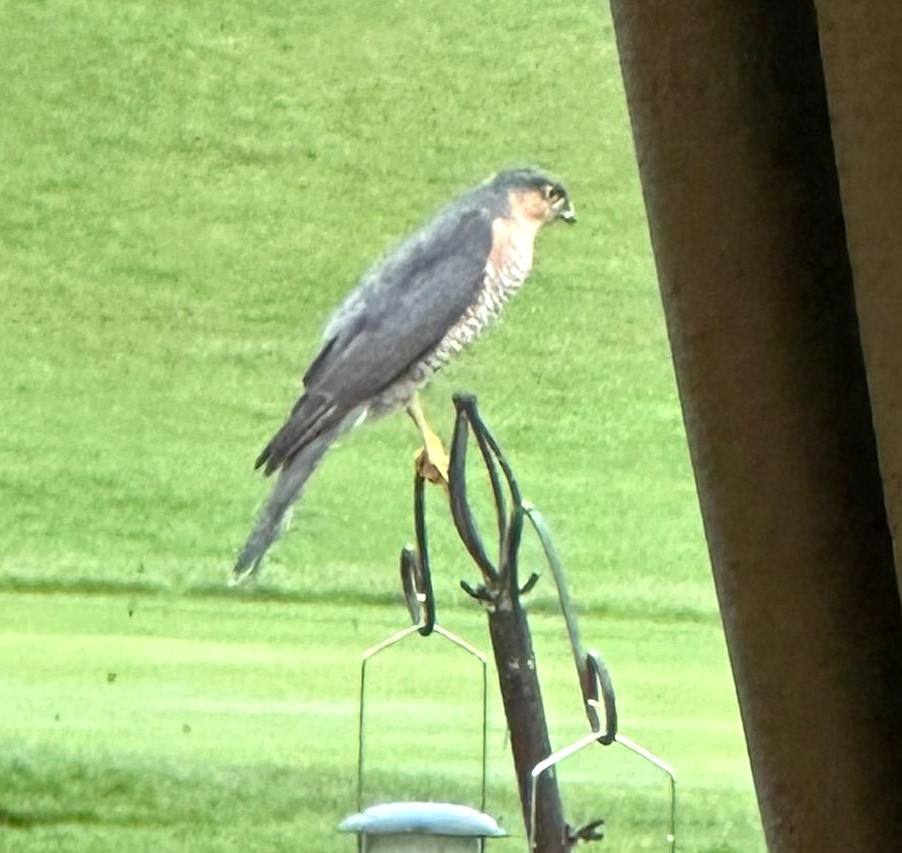Sickleholme Nature Notes
We experienced another month of mixed weather in January and the first two weeks seemed particularly quiet and absent of wildlife. With a little patience, however, much could still be found.
The older plantings of Gorse produced the first wildflowers of the year, and during the final ten days there were reports of a few Daisies and Dandelions. Early bird song was also picking up, with the winter subsong of our Robins supplemented by singing Mistle Thrushes (an early breeding species), some noisy Carrion Crows, and two reports of Coal Tits in full song. Other sightings included a sizeable flock of Fieldfare, the resident Pied Wagtails and a small number of Lesser Redpolls in treetops. The latter breed in the Sickleholme conifer plantations but are not a common sight in winter. “Bird of the Month”, however, was the male Sparrowhawk photographed (see this month’s image) by Patrick at the clubhouse feeders. So, Patrick feeds the small birds and they feed the hawk! Nothing to get upset about there, as it is all part of the food chain and is the reason why, broadly speaking, the smaller the species then the more eggs that they lay. That allows for predation and the number of young is relevant to risk. The ultimate example is albatrosses (not likely to be seen locally!) which have no natural predators, so lay just one egg every two years.
I had a poke around some of Matt’s “bug hotels” which can look almost redundant at this time of year but do, in fact, play a valuable part in keeping small creatures and their eggs intact during the winter period. At a time when scientists are producing such headlines as “Averting the Insect Apocalypse” there seems a genuine warning that if we keep reducing the number of pollinators, through irresponsible use of chemicals and habitat destruction, then the risk of worldwide food shortages is very real. A heavy subject, perhaps, for our monthly nature notes but it does echo another recent headline which ran “Nurture nature; our future depends on it”.
Elsewhere on the course, the pond looks equally quiet but only because many of the inhabitants will be inert in the water. If we have any frogs at present, then they will have overwintered at the bottom of the pond as an attempt to be the first to mate in the Spring.
Please keep your sightings coming in (my email address is barney.mays42@gmail.com) as they make a large contribution to these monthly summaries.
Bryan Barnacle


